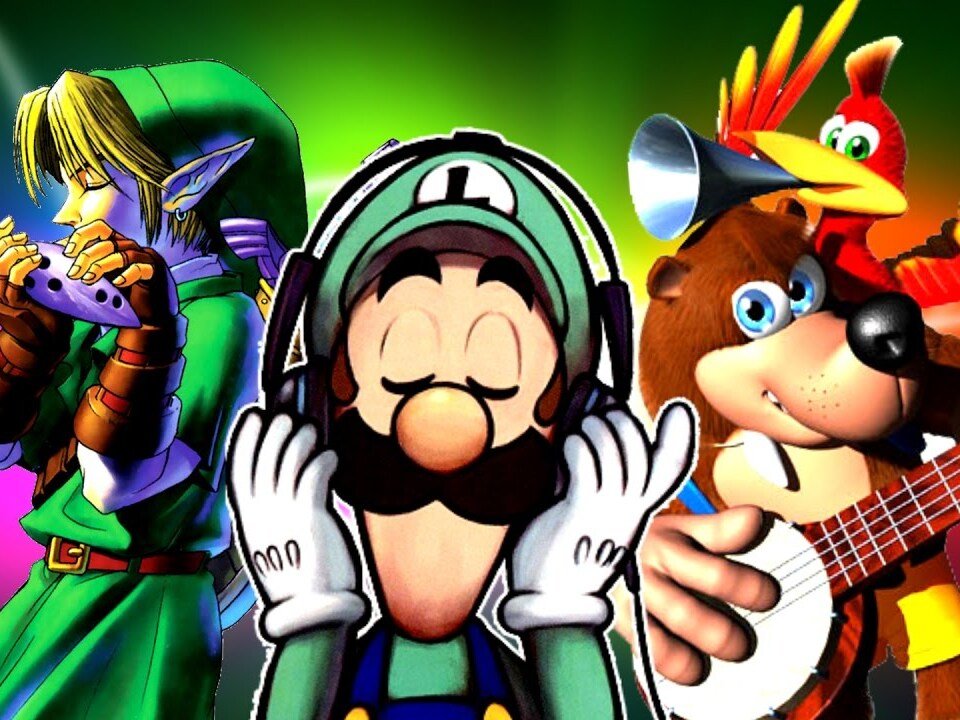
The Power of Melody: Exploring the Most Popular Video Game Music
Share
Hello music lovers and gamers! Have you ever found yourself lost in the captivating melodies of a video game soundtrack, or perhaps humming a game theme days after you've played? That's the power of video game music—it not only enhances gameplay but embeds itself into our memories, influencing emotions and creating a richer gaming experience. Today, let's explore the most popular and influential video game music, understanding its evolution, impact, and the genius behind those mesmerizing melodies.
The Evolution of Video Game Music
From Beeps to Symphonies
The journey of video game music is as old as video games themselves, beginning in the early 1970s with simple tones and evolving into the complex, layered orchestrations we hear today. In the early days, technical limitations restricted composers to a handful of synthetic sounds. As hardware improved, so did the musical possibilities, allowing for richer compositions with diverse instruments and styles.
Key Milestones in Video Game Music History
- 1980s: The era of chiptune, using simple synthesizer chips in consoles like the NES. Composers like Koji Kondo ("Super Mario Bros.") crafted memorable, melodic hooks within severe limitations.
- 1990s: The CD-ROM era brought high-quality recorded audio. Games like "Final Fantasy VII" showcased full orchestral scores that were integral to storytelling.
- 2000s to Present: Advances in digital technology permit dynamic soundtracks in games like "Skyrim" and "The Witcher 3," where the music adapts to gameplay, enhancing immersion.

Role of Music in Video Games
Enhancing Gameplay
Music in video games serves multiple functions beyond mere background noise. It sets the pace during intense sequences, eases tension during quieter moments, and often signals important gameplay cues, subtly guiding the player through the narrative and mechanical aspects of the game.
Emotional Engagement
Think about the emotional impact of the soundtrack in "The Last of Us." The music's melancholic tones echo the game’s themes of loss and survival, deepening the player's emotional connection to the characters and their journey. Such soundtracks go beyond the game, affecting players on a personal level and often staying with them outside the gaming experience.
Setting the Scene
In games like "World of Warcraft," music acts as an auditory cue for the game's diverse environments. Each zone has its own musical identity that complements its visual style and atmosphere, enhancing the overall sense of place and immersion.

Most Popular Video Game Soundtracks
Iconic Tracks and Their Impact
Tracks like "Zelda’s Lullaby" from "The Legend of Zelda" and "One-Winged Angel" from "Final Fantasy VII" have transcended their games to become part of the larger cultural lexicon. These compositions are celebrated not just for their musicality but for how they encapsulate key moments of gameplay and narrative, creating a lasting legacy.
The Composers Behind the Music
Exploring the creative geniuses behind these melodies, we find figures like Nobuo Uematsu, whose work on the "Final Fantasy" series has inspired countless musicians. Their ability to convey complex emotions and enhance narrative through music has set a high standard in the industry.
Profiles of Prominent Game Music Creators
Materia Collective
Materia Collective is known for its innovative approach to video game music, focusing on creating and distributing cover albums and arranging concert performances. Their work plays a crucial role in how video game music is perceived in the music industry, elevating it from background sound to an art form worthy of concert halls.
GameChops
As a music label, GameChops specializes in the remixing and reinterpretation of classic video game music into electronic and dance genres. Their approach not only appeals to game music enthusiasts but also introduces these themes to new audiences, bridging the gap between video game culture and mainstream music scenes.

The Composition Process
Behind the Scenes
Diving into the composition process reveals the complex, creative challenges faced by composers. They must consider the game’s narrative arc, the various gameplay mechanics, and the emotional journey of the player. This section could explore case studies of specific soundtracks, illustrating how composers align their music with game developers' visions.
Interactive and Adaptive Music in Video Games
This segment would delve into how modern video games use music dynamically. Games like "Celeste" and "Doom" have soundtracks that respond to the player's actions, changing tempo, intensity, or musical motifs based on what’s happening on-screen, enhancing the reactive feel of the game world.
The Future of Video Game Music
Emerging Trends
The future of video game music includes integrations with virtual reality, augmented reality, and more sophisticated AI-driven music that can generate infinite adaptive compositions personalized to each player's style and choices. These advancements promise to revolutionize our gaming experiences, making them even more immersive and personalized.
In Conclusion
Our exploration of video game music demonstrates its pivotal role in the gaming industry and its evolution into a significant cultural force. As we look to the future, the lines between video game music and mainstream musical compositions continue to blur, promising exciting developments for gamers and music lovers alike.

